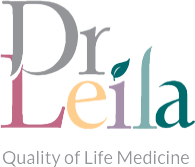
Why Am I So Tired?
“It’s not too late to ask yourself if you really are the person you want to be, and if not, who you do want to be.” ~ Morrie Schwartz
Do you feel tired most of the time?
Even though you get 8-10 hours of sleep at night, do you still wake up feeling fatigued? Do you feel the need to take a nap every afternoon? Maybe it feels hard to get your energy up. Perhaps you’re trying to lose weight – you’re doing all the right things related to diet and exercise – but the scale doesn’t budge. Perhaps you are experiencing mood swings, anxiety, and depression.
All of these symptoms can point to thyroid disease. The thyroid, a butterfly-shaped gland at the back of the neck, controls the metabolic rate of the body. The thyroid is responsible for how much energy our cells produce, which translates into how energetic we feel.
Other symptoms of thyroid disease include hair loss (or dry, brittle hair); constipation; temperature sensitivity or feeling cold when no one else does; rough, dry skin; muscle weakness, cramps, and aches; irritability; memory loss or brain fog; abnormal menstrual cycles for women; decreased libido; swelling in the joints; and migraines.
On average, 25 million people in the US suffer from thyroid disease. Ninety percent of all thyroid imbalances are due to hypothyroidism, which is an underperforming thyroid. Many people don’t realize they are experiencing the symptoms of thyroid disease, but they don’t have to suffer any longer!
How Do Thyroid Problems Start?
Stress!
Stress causes changes in the body’s stress hormone, cortisol. Cortisol is also the main regulatory hormone of the body and controls everything in the body, including our night/day cycles, our blood pressure, sugar levels, and thyroid levels. When patients come to me believing they have a thyroid problem, the real problem is with their cortisol level.
Environmental Toxins
Environmental toxins affect the thyroid in a few different ways. They contribute to the overall stress on the body and thus affect cortisol levels, but they also impede the function of the endocrine organs – the organs in the body that make hormones, such as the thyroid.
Many toxins affect the thyroid gland, including pesticides, insecticides, and plastics, but one of the biggest problems for the thyroid is bromide. Bromide is a chemical that is used in fabrics as a fire-retardant. It is found in mattresses, couches, carpets, and clothing.
Bromide replaces iodine in the thyroid so that the thyroid doesn’t work as efficiently. (Interestingly, chloride does the same thing, so for those who swim a lot or have high exposures to chlorine, thyroid problems are common.)
If you suspect you have thyroid disease, please consult a metabolic and functional medicine provider. He or she will be able to recommend the right tests for you and will give you a complete answer to put you on the right path to feeling better!
How to Reverse Thyroid Disease
After you have had appropriate testing and you find you have sub-optimal thyroid hormone levels, it’s time to start reversing thyroid disease.
Cleanse Toxins
Eliminate toxins from your body with chlorella or blue-green algae. These alginates bind toxins and pull them out through the intestinal tract.
Eliminate Stress
Examine the stressors in your life and eliminate them as best you can. To learn more about stress, where it comes from, and how to get rid of it, check out Adrenal Fatigue.
Use Armour
If your thyroid is still sub-optimal, replace the thyroid hormone with a desiccated pig glandular thyroid like Armour. Pigs actually have the exact same thyroid hormone as humans, so Armour is a more natural approach and studies show that patients actually feel better.
Supplement!
Optimal thyroid function also requires B vitamins, zinc, selenium, and iodine. A B-50mg complex, along with 30mg of zinc, 200mg of selenium, and at least 150mcg of iodine can improve thyroid functioning. Vitamin D levels also affect thyroid and should be optimized by taking 2000 to 4000 IU/day for adults.
Thyroid problems can be complex and are interconnected with all our other hormones, even our sex hormones. Working with a provider who has been trained in addressing these complexities can result in improved functioning of your entire body and help you feel great!
If you’d like more information on the thyroid, register for our free educational seminar on September 21! We can’t wait to see you there!








